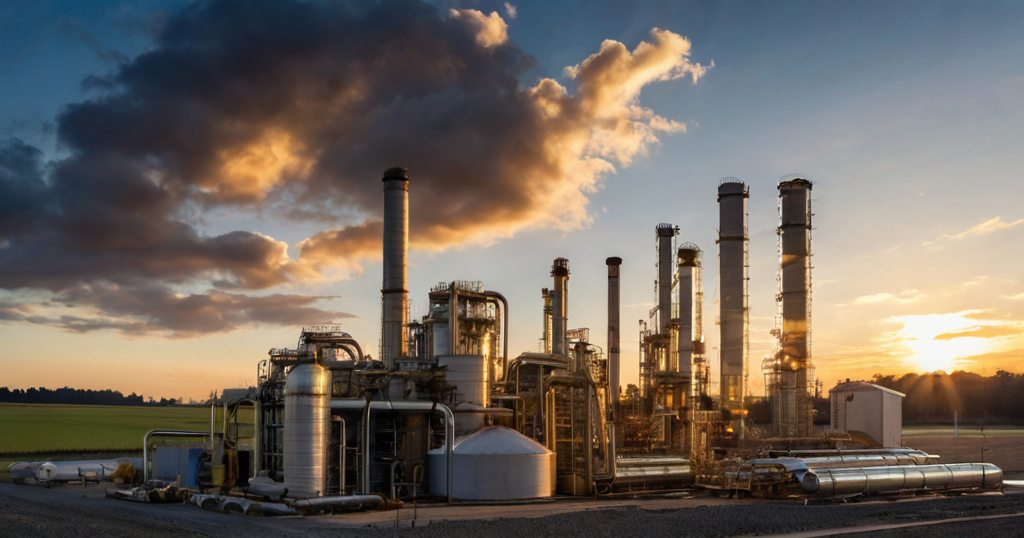Your challenges
Tackling complex water and wastewater challenges across various energy sectors, such as:
Managing high-strength wastewater
Managing high-strength wastewater from biofuel and hydrogen production processes remains a key challenge for many facilities.
Meeting strict discharge requirements
Meeting strict discharge requirements and minimizing water use are critical in upstream oil and gas operations.
Reducing water cost and focus on water stewardship to meet sustainability goals
Reducing water costs and focusing on water stewardship are essential to meet sustainability goals. Reusing wastewater for cleaning purposes and recovering process water from pasteurization lines and cooling towers can support these efforts.
Handling challenging wastewater streams
Handling challenging wastewater streams from refinery and downstream processes requires advanced treatment solutions.
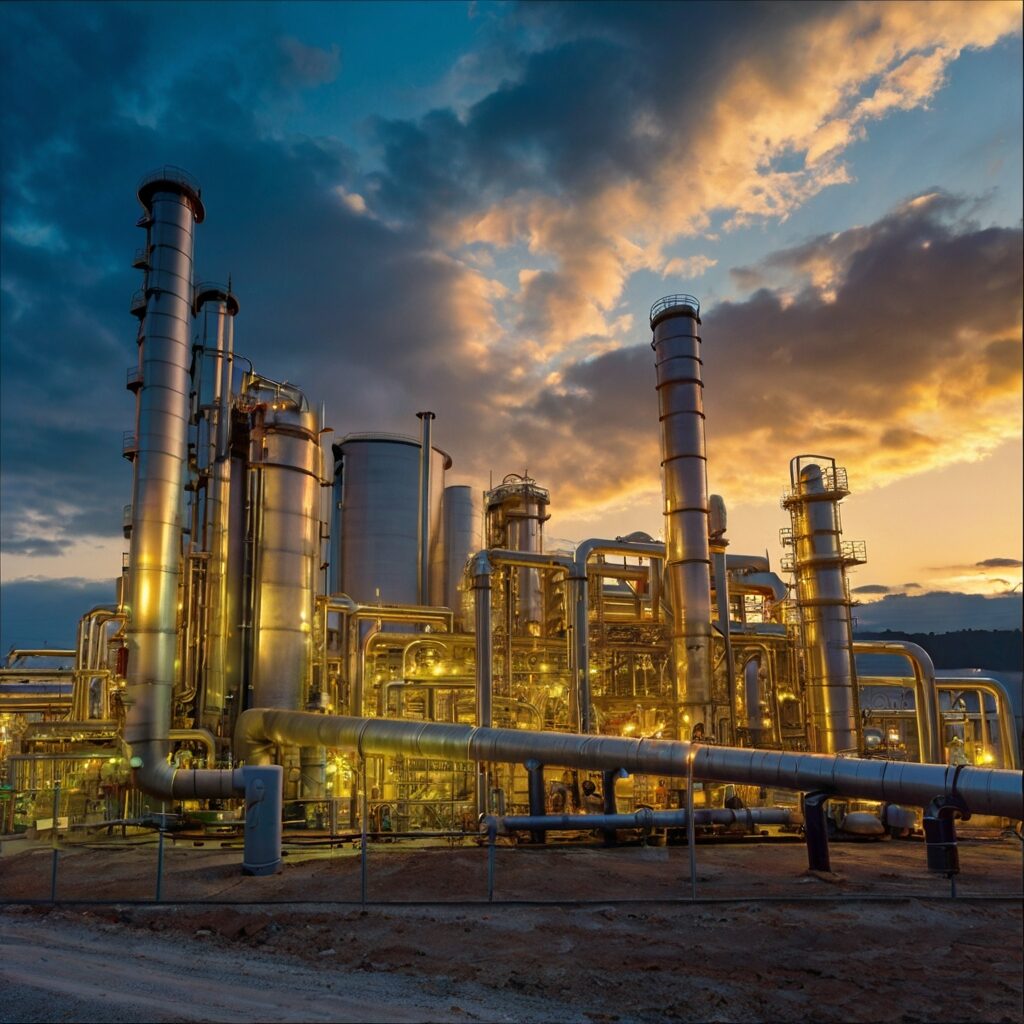
How can NSI meet your needs?
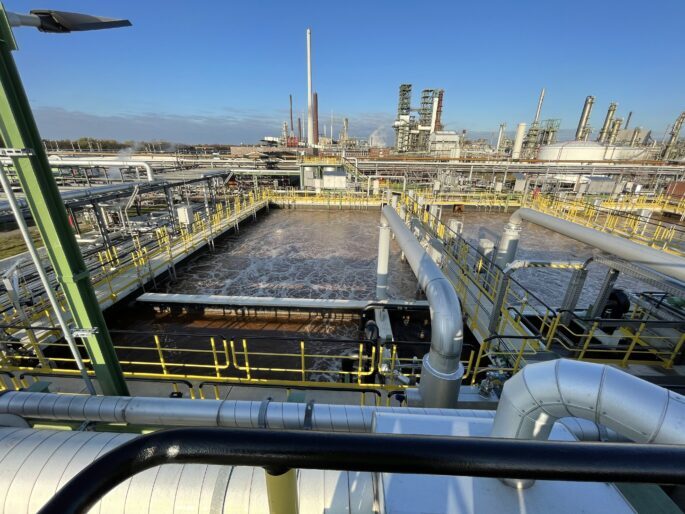
We’re ready to give water the value it deserves in the energy industry. To tackle your challenges, we offer an innovative approach to:
- Design, build, and operate water and wastewater treatment systems tailored to energy sector needs.
- Recover energy, heat, and valuable by-products from wastewater and sludge.
- Integrate circular water concepts for reuse and zero-liquid discharge (ZLD).
- Improve water quality for critical processes like steam generation and chemical reactions.
- Minimize operational risk through robust, reliable, and scalable solutions.
Discover our solutions
Based on your requirements and contract type (DBFMO), we select our inhouse technologies based on our extensive (waste)water knowledge of the energy industry.

- Industrial
- Municipal
Water consultancy services
- PFAS
- Micropollutants
- Process water
- Drinking water
- Industrial water
- Wastewater
- Rainwater
- Source water
- Resource Recovery
- Sludge
If you are reviewing your (waste)water management strategy and treatment objectives, you may run into several questions. To meet sustainability targets, optimize or debottleneck (...)
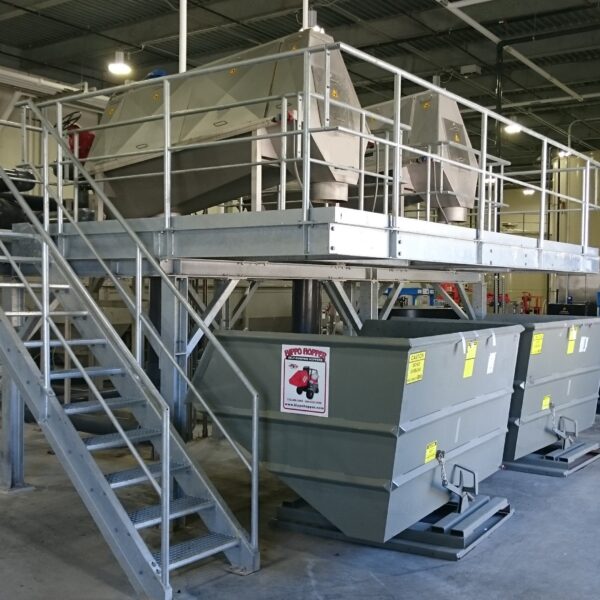
- Municipal
- Industrial
Filter and screening systems
- Wastewater
- Drinking water
- Industrial water
Filter and screening systems remove large particles from surface water and wastewater. By capturing debris early, they prevent pipe blockages and protect your equipment, helping (...)
Talk with our expert
Contact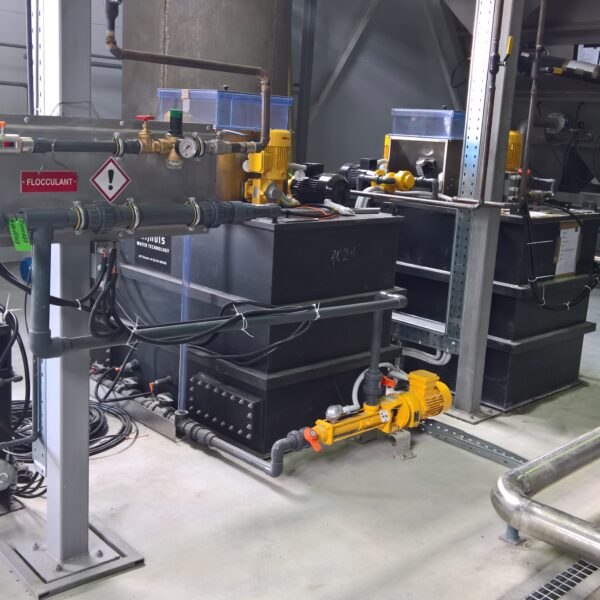
- Industrial
- Municipal
Coagulation & Flocculation
- Industrial water
- Process water
- Drinking water
- Wastewater
Our coagulation and flocculation solutions are engineered to support efficient solid-liquid separation across industrial and municipal applications.

- Municipal
- Industrial
Dissolved Air Flotation solutions (DAF)
- Drinking water
- Wastewater
- Industrial water
- PFAS
Our DAF systems are engineered to provide high removal efficiency, operational flexibility, and reliable performance under varying conditions.
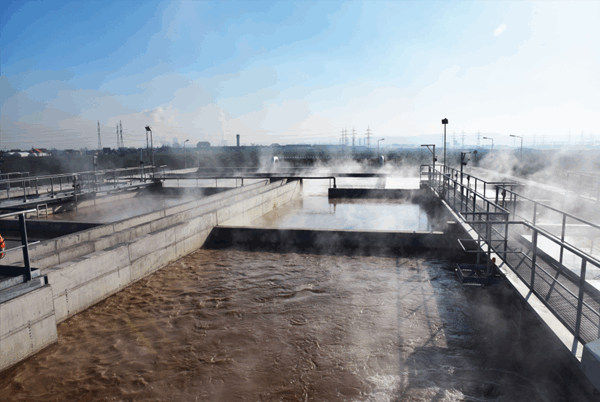
- Industrial
- Municipal
Aerobic treatment
- Industrial water
- Wastewater
Aerobic biological treatment is a process that uses oxygen and microorganisms to remove COD and BOD, breaking down organic pollutants present in the wastewater into simpler, non-harmful (...)
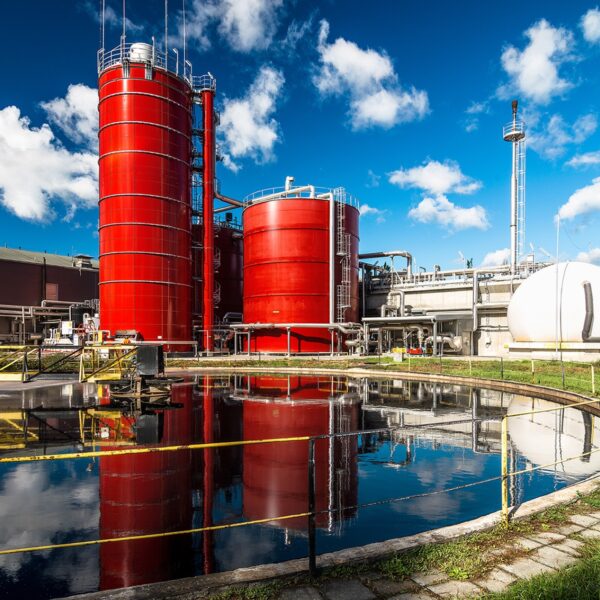
- Industrial
- Municipal
Anaerobic wastewater treatment
- Industrial water
- Resource Recovery
Anaerobic wastewater treatment is a very effective and sustainable way of removing biodegradable organic compounds (COD/BOD) from wastewater without using oxygen. As the organic (...)
- Industrial
- Municipal
Membrane filtration
- Process water
- Industrial water
- PFAS
- Micropollutants
- Wastewater
- Drinking water
- Source water
- Rainwater
At Nijhuis Saur Industries (NSI), part of Saur Group, we deliver membrane filtration solutions that drive water reuse, resource recovery, and environmental compliance. Our membrane (...)
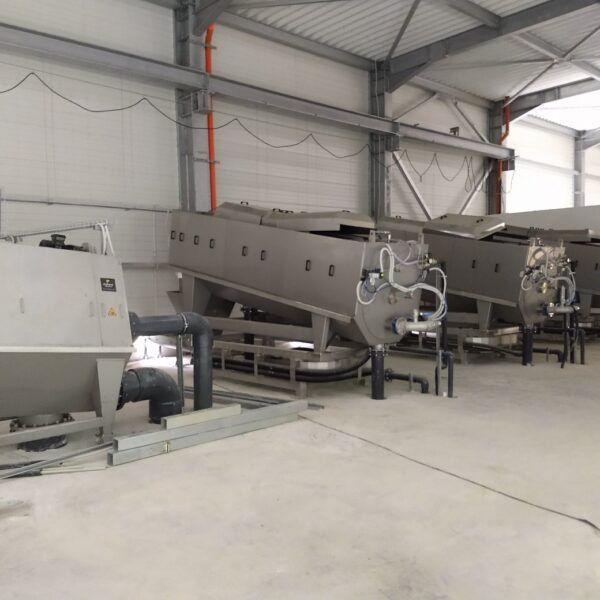
- Industrial
- Municipal
Sludge treatment
- Sludge
Efficient sludge treatment is essential for sustainable and cost-effective wastewater treatment. At Nijhuis Saur Industries, part of Saur Group, we offer advanced technologies (...)

- Municipal
- Industrial
Digital solutions
- PFAS
- Micropollutants
- Wastewater
- Drinking water
- Source water
- Rainwater
- Resource Recovery
- Sludge
- Process water
- Industrial water
In today’s rapidly evolving technological landscape, digital solutions are essential for optimizing water management processes. At Saur, we leverage advanced digital tools and (...)
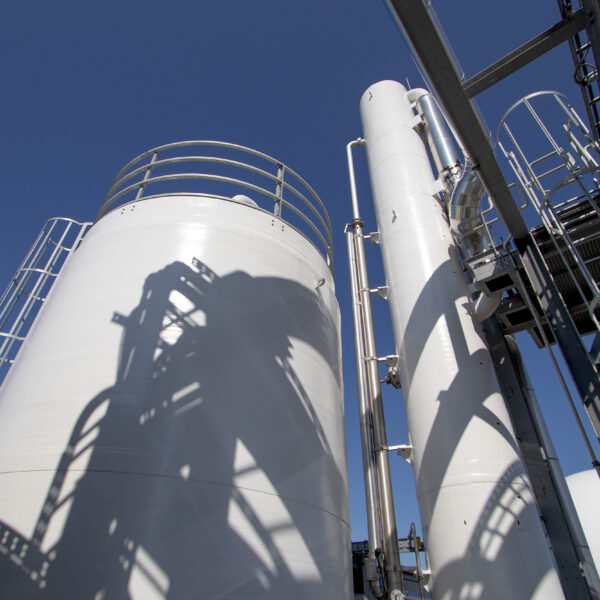
- Industrial
- Municipal
Biogas desulfurization
- Wastewater
- Resource Recovery
- Industrial water
- Sludge
Where organic material is anaerobically degraded, biogas will be produced. In order to utilize this biogas, it needs the right quality, pressure and humidity. H2S is a specific (...)
To which energy subindustries water treatment can be applied?
Based on your requirements and contract type (DBFMO), we select in-house technologies suited to your energy application, supported by decades of experience in water treatment and recovery. We support the following segments:
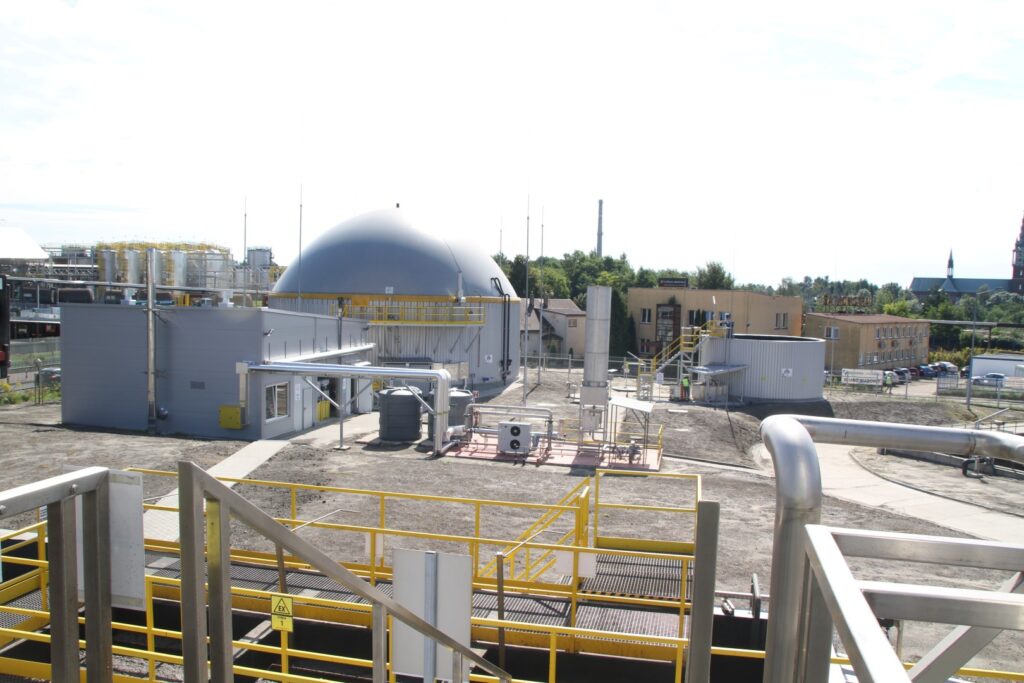
Biofuels
- Treat wastewater rich in organics and nutrients.
- Recover biogas for energy generation.
- Enable water reuse and nutrient recovery.
Hydrogen
- Treat process water for electrolysis and fuel cell production.
- Implement closed-loop systems for ultrapure water recovery.
- Manage waste brine and chemical contaminants.
Waste-to-Energy - learn more about our Waste-to-Energy solutions
- Leachate and condensate treatment.
- Odour control and air scrubber water management.
- Heat and nutrient recovery from digestate and wastewater.
Upstream (Oil & Gas)
- Produced water treatment and reuse.
- Desalination and advanced oil-water separation.
- Sludge dewatering and disposal.
Downstream (Refineries & Petrochemicals)
- Cooling tower blowdown reuse.
- Process water polishing and zero-liquid discharge (ZLD) solutions.
- Removal of hydrocarbons and heavy metals.
References in the energy industry
Discover more references
- Industrial
- Energy
ORLEN Wastewater Treatment Plant
Context
To support its biofuel production and environmental goals, ORLEN Południe S.A. invested in a state-of-the-art wastewater treatment plant at its Trzebinia site. The facility needed to treat complex wastewater streams—including industrial, rainwater, and biodiesel effluents—while recovering valuable resources and minimizing environmental impact. The challenge was to deliver a fully automated, safe, and efficient system that could handle diverse influents and support heat and energy recovery.
Solution
Nijhuis Saur Industries (NSI), part of Saur Group, designed and delivered a turnkey wastewater treatment plant for ORLEN Południe S.A. The system integrates multiple treatment stages including CPI separation, flocculation, dissolved air flotation (DAF), biological MBBR, and anaerobic digestion (ECONVERT-DGF). The plant is fully automated and includes intelligent monitoring to ensure optimal performance and environmental compliance. Biogas generated from sludge digestion is reused for heating, supporting ORLEN’s sustainability goals.
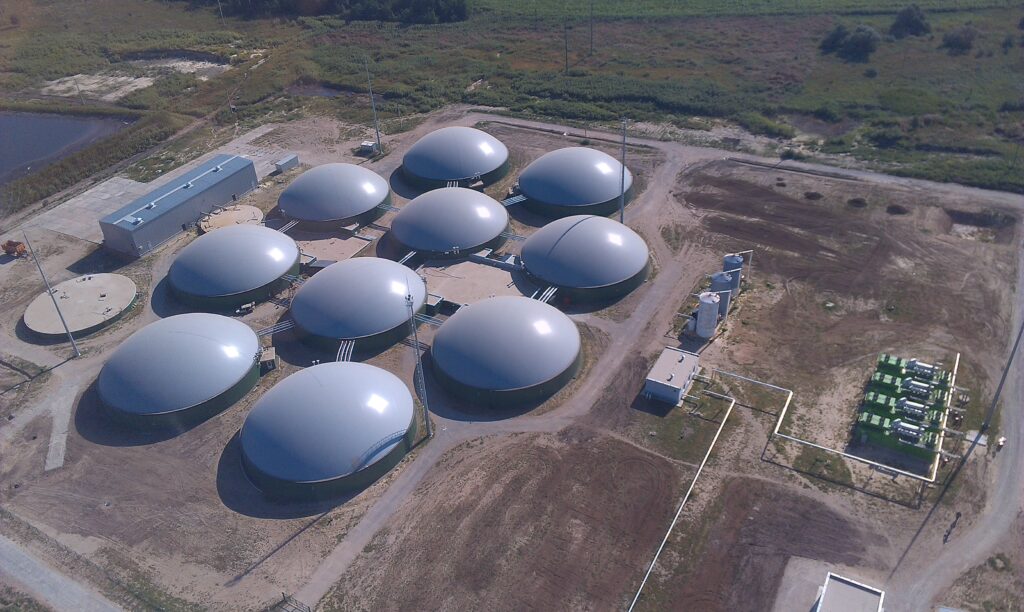
- Industrial
- Food & Beverage
- Energy
Oril-Leader -one of the biggest biogas plants in Europe
Project’s context & challenges
Oril-Leader is a full-cycle poultry farm, producing everything from day-old chicks to broiler meat. The production process includes egg incubation, rearing, slaughtering, and broiler processing. The farm supplies products to Ukraine’s domestic market.
MHP aims to achieve full energy independence using organic farming practices. A key part of this goal is the biogas plant, which converts chicken manure into heat, cooling, and energy—helping MHP move toward energy self-sufficiency.
By the end of 2014, the plant reached full capacity. In 2015, it operated at that level consistently. It remains Europe’s largest biogas facility dedicated to processing chicken manure and slaughterhouse waste.
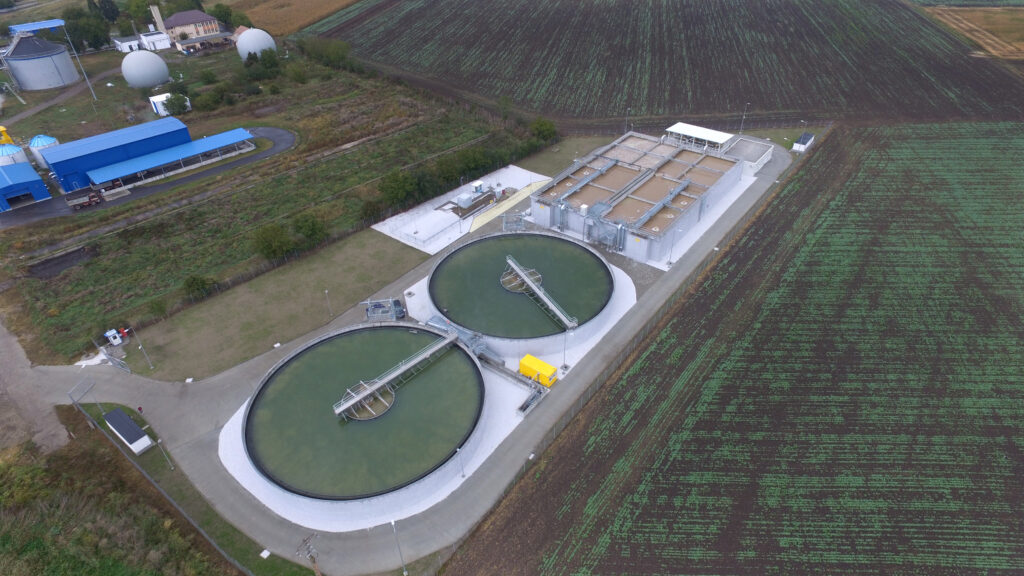
- Industrial
- Energy
Nitrogenous Fertilizer Plant AZOMURES Turnkey WWTP
Project context & challenges
With over 50 years of experience, Azomureș S.A. stands as Romania’s leading producer of mineral fertilizers for agriculture. The company supplies farmers nationwide with high-quality nitrogen (N) and complex NPK fertilizers that support crop productivity and soil health. Construction of the Tirgu Mureș production facilities began in 1962 and expanded in phases over the years. Today, the plant spans approximately 100 hectares in the southwestern part of the city. In 2012, Azomureș joined the Ameropa Group, strengthening its position in both local and international markets.
Azomureș aims to become a greener and more sustainable company. As part of this vision, the company launched a major investment project that includes the construction of a biological wastewater treatment plant. This facility helps protect the local environment by discharging clean, treated water into the Târgu Mureș River. In addition to the wastewater treatment plant, the project also modernizes the urea and ammonia production lines. This comprehensive upgrade ranks among the largest and most advanced industrial developments in Romania, meeting the latest national standards for environmental protection and production efficiency.
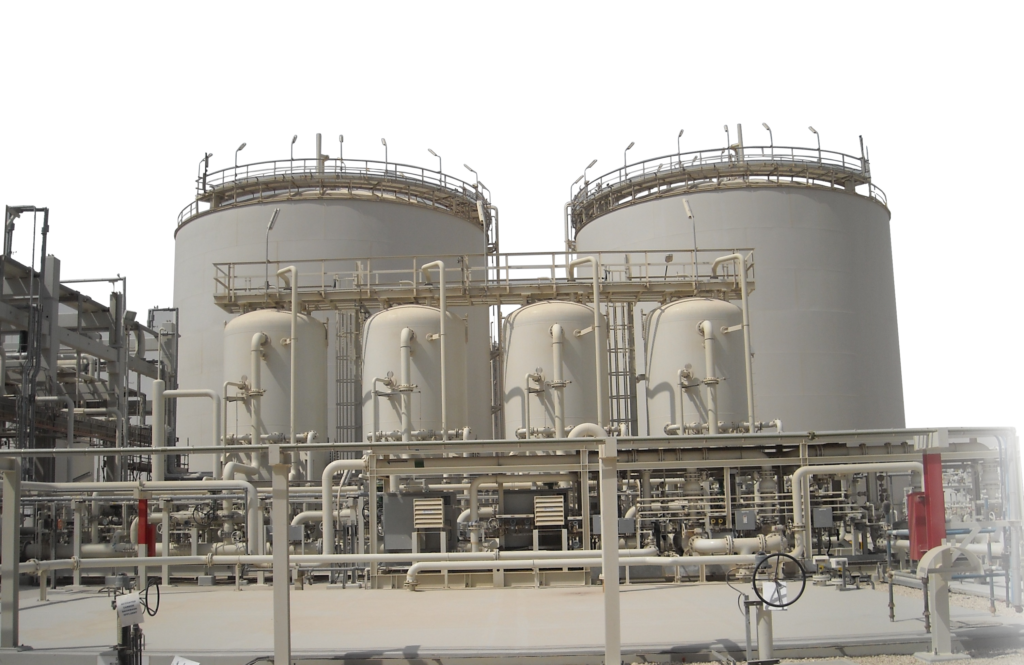
- Industrial
- Energy
LNG integrated water treatment project
Context
A joint venture awarded Unidro, part of Nijhuis Saur Industries, multiple large orders for a giant LNG project in the Middle East. The project includes four new LNG trains, each with a capacity of 8 million tonnes per annum (MTPA) of Liquified Natural Gas. To meet strict process performance and quality requirements, Unidro was selected as the most reliable and experienced partner to deliver integrated water treatment packages.
Solution
Unidro designed and supplied an integrated water treatment solution for the LNG project. The system treats sanitary water, oily water, wastewater, and condensate, using advanced technologies such as MBR, filtration, and carbon adsorption. The CT side stream filters handle nearly 5,000 m³/h per train. The solution ensures compliance with stringent quality standards and supports sustainable operations.
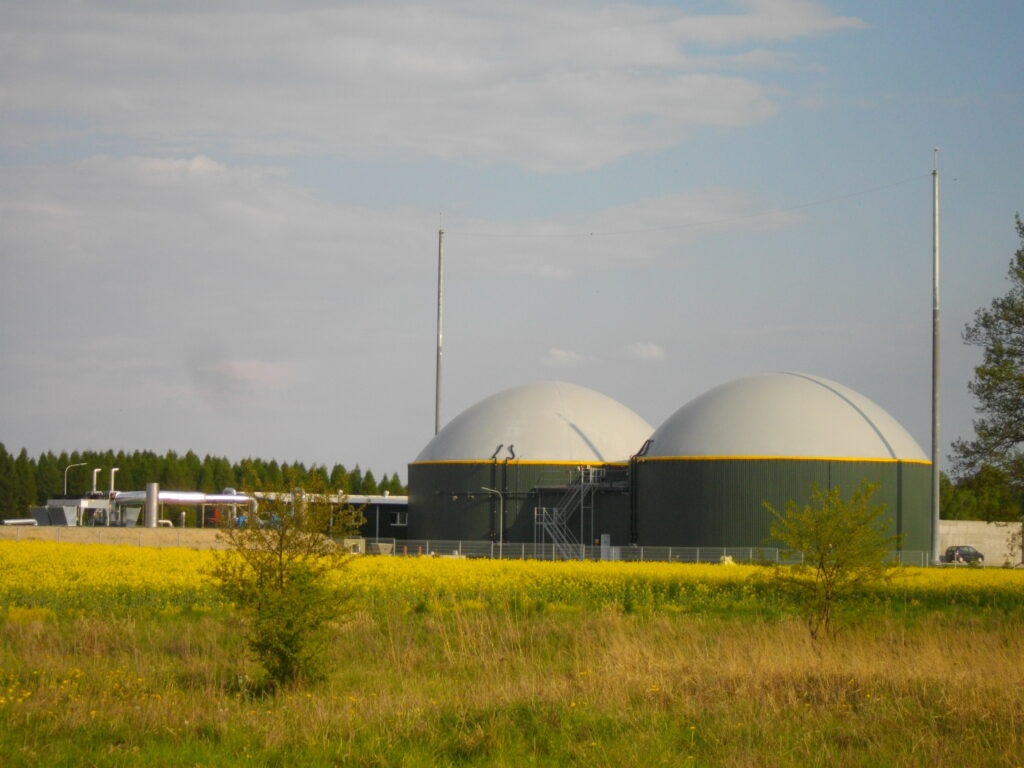
- Industrial
- Energy
Biogas Plant Rzeczyca -turn agricultural waste into power
Project’s context & challenges
Rzeczyca Sp. z o.o. is a local company that processes agricultural waste and produces biogas. It owns and operates the Rzeczyca biogas plant, transforming organic materials into clean, renewable energy.
The plant uses heat from its combined heat and power (CHP) units for internal needs. It then uses the remaining energy to dry the solid fraction of the digestate, improving efficiency and sustainability.
Local farmers supply feedstocks such as grass, vegetable waste, distillery vinasse, and industrial by-products. The project focuses on sustainably managing these materials while generating green energy for the local power grid.
Nijhuis served as the general contractor, delivering the full technology package along with civil and electrical works, CHP units, and a direct connection to the grid.
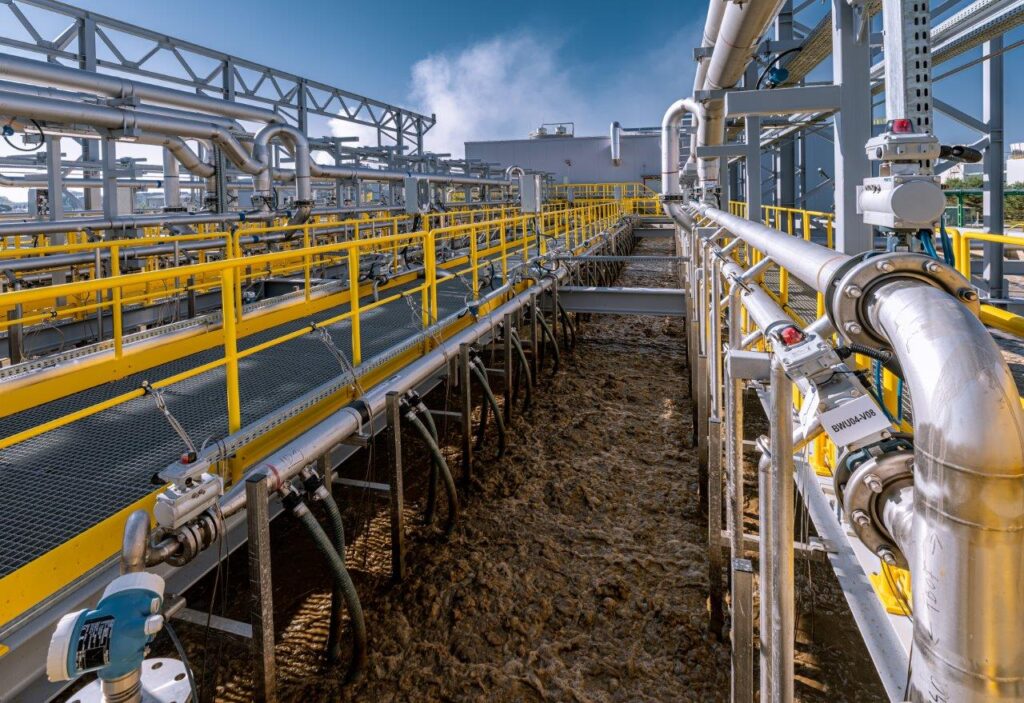
- Industrial
- Energy
Modernization of WWTP for chemical company
Project’s context & challenges
It is one of the largest and most modern chemical companies in Poland. The company maintains a strong position in both domestic and international markets, thanks to its production of high-quality products such as mineral fertilizers, plastics, liquefied gases, and more.
Ongoing development and facility expansion exceeded the capacity of the existing wastewater treatment plant, which could no longer treat sewage to the required standards. To address this, the company implemented a customized solution that meets increasingly stringent wastewater treatment standards while allowing for greater sewage intake—without the need for additional tank construction. Throughout the project, the company ensured uninterrupted purification processes.
This investment modernized the plant’s wastewater treatment technologies, significantly improving overall efficiency. It also enhanced the removal of biogenic compounds by optimizing nutrient delivery. Additionally, the company developed a response strategy for handling excess nitrogen and organic compound discharges from production facilities.
